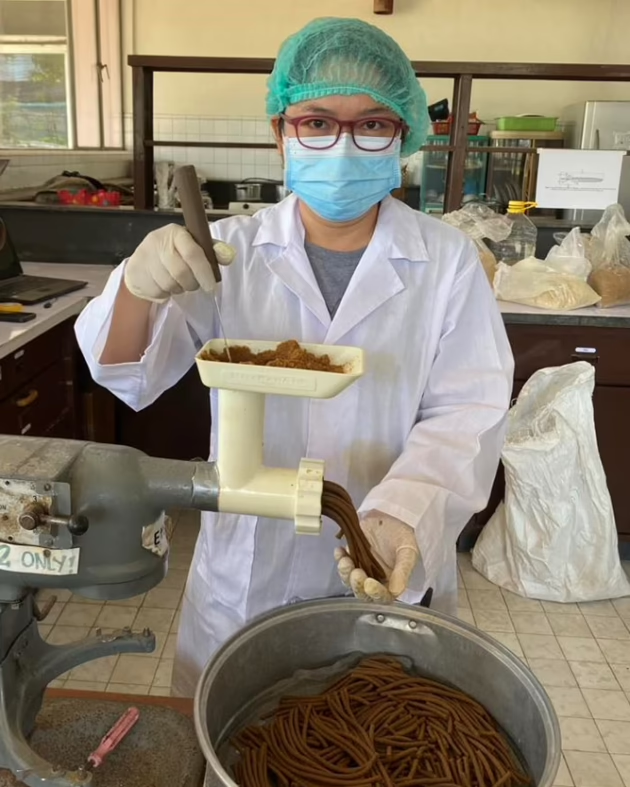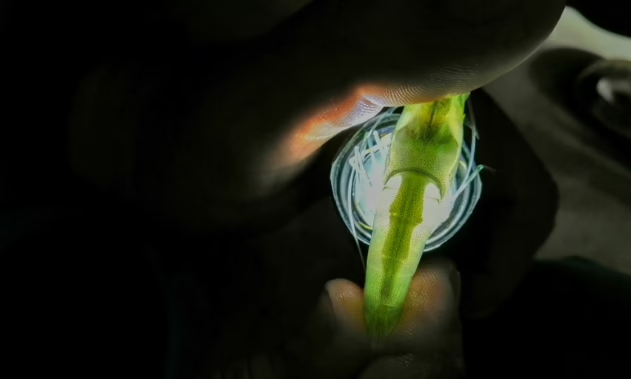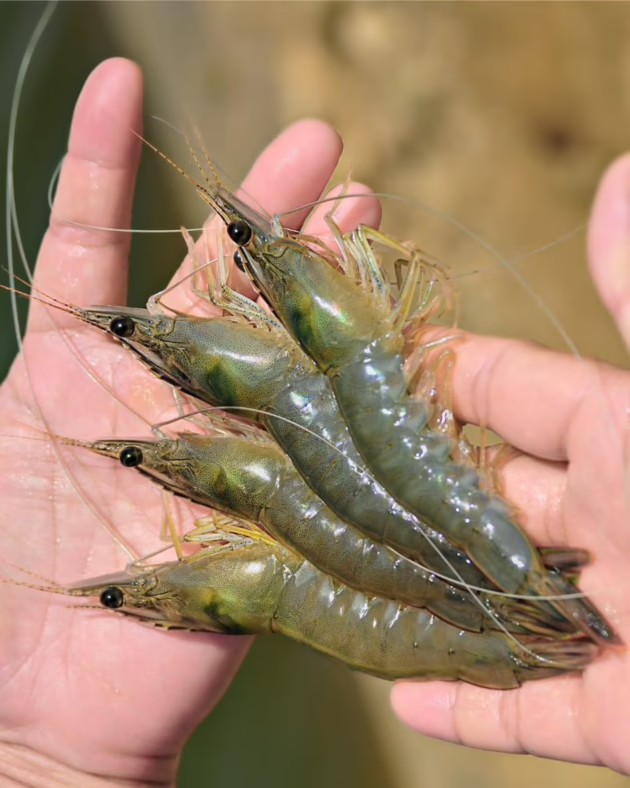
To induce broodstock maturation in shrimp, hatcheries have long relied on traditional methods like eyestalk ablation—removing one of the shrimp’s eyestalks to stimulate reproductive hormone release—and feeding fresh, live diets made from polychaete worms, mollusks, and other marine organisms.
These methods worked, but not without cost. They come with significant drawbacks: an inconsistent supply of live feed, which may also be carriers of diseases such as white spot syndrome virus (WSSV) and acute hepatopancreatic necrosis disease (AHPND).
Seeking a safer, more reliable solution, Dr. Sheryll Santander-Avanceña and her team at SEAFDEC/AQD, in collaboration with the University of the Philippines Visayas, developed a formulated feed for the Indian white shrimp (Penaeus indicus) called the “Special Feed for Maturing Penaeus indicus Broodstock,” which was granted a utility model by the Intellectual Property Office of the Philippines back in February 2021.
The diet contains 55 % protein and 12 % lipid and is made from ingredients such as shrimp and fish meal, squid meal, cod liver oil, cholesterol, wheat flour, gluten, and a balanced mix of essential vitamins and minerals.
Feeding trials showed promising results: survival rates reached 90–96 %, daily growth averaged 0.23–0.24 %, and maturation rates improved, with 50–55 % of broodstock achieving gonadal development.
Beyond general health and growth, the artificial diet enhanced key reproductive performance indicators, including the Ovary Shadow Ratio (OSR), Hepatosomatic Index (HSI), and Gonadosomatic Index (GSI). Notably, shrimp fed the diet also produced larger oocytes—a trait closely linked to better larval quality and higher fry survival rates.


 SEAFDEC/AQD Southeast Asian Fisheries Development Center | Aquaculture Department
SEAFDEC/AQD Southeast Asian Fisheries Development Center | Aquaculture Department



